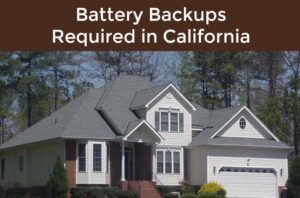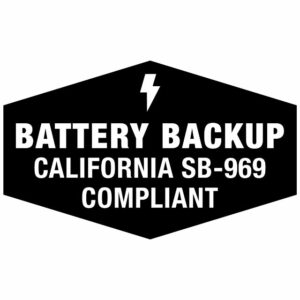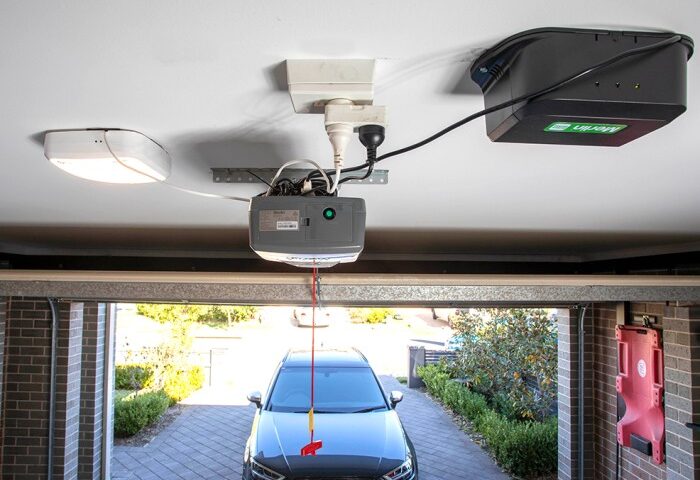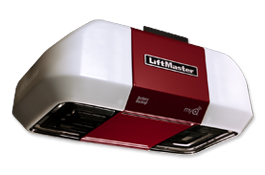 Unfortunately, at least five souls lost their lives during the most recent devasting Northern California forest fires because their garage door openers did not function after power failed at their properties. In an attempt to help prevent unnecessary loss of life in similar situations the California Legislature passed SB 969 which will take effect July 1, 2019. The law effects any and all residential properties going forward because it imposes new requirements on all garage door openers installed into the future. Homeowners, residential rental property owners and property managers managing rental units who are replacing automatic garage doors will now be required to install garage door openers with battery backup systems.
Unfortunately, at least five souls lost their lives during the most recent devasting Northern California forest fires because their garage door openers did not function after power failed at their properties. In an attempt to help prevent unnecessary loss of life in similar situations the California Legislature passed SB 969 which will take effect July 1, 2019. The law effects any and all residential properties going forward because it imposes new requirements on all garage door openers installed into the future. Homeowners, residential rental property owners and property managers managing rental units who are replacing automatic garage doors will now be required to install garage door openers with battery backup systems.
 New California Law and Your Garage Door Opener
New California Law and Your Garage Door Opener
After the realization of the unnecessary deaths caused by non-functioning garage door openers Governor Jerry Brown signed SB 969 in an effort to prevent similar situations from happening. Signed into law in September 2018, Governor Brown with the full support of the California Senate, on a 53-6 vote, had an easy decision as this makes all the sense in the world – saving lives by improving technology for everyday home mechanisms.
 Bill Highlights Include:
Bill Highlights Include:
Any and all automatic garage doors sold in California after July 1, 2019 must, by operation of law, include a backup battery system that can adequately provide power to operate the overhead garage doors in the event of a power outage.
Old garage door openers are NOT allowed to be utilized with a new garage door installation.
Imposition of a civil penalty of $1,000 for offending garage door openers or installers.

Bill Highlights Do Not Include:
The new law does not require existing openers to be backed up with batteries, but it is recommended that all homeowners consider upgrading for the increased safety features. When an opener is replaced it must be a battery backed up system.
Manufacturers Have Already Responded to New Law
 Eventually all manufacturers will be making this battery backup system a standard feature. There are already companies that are implementing these technologies in their products. For example, the LiftMaster 8500 opener series includes an integrated battery backup system, and Smart features with Wi-Fi connected to your phone – to make your life safer, simpler and easier. The Genie ProSeries opener has monitoring features and soft closure operation in addition to the battery features. Easy Lift openers have already implemented battery backup products to insure compliance.
Eventually all manufacturers will be making this battery backup system a standard feature. There are already companies that are implementing these technologies in their products. For example, the LiftMaster 8500 opener series includes an integrated battery backup system, and Smart features with Wi-Fi connected to your phone – to make your life safer, simpler and easier. The Genie ProSeries opener has monitoring features and soft closure operation in addition to the battery features. Easy Lift openers have already implemented battery backup products to insure compliance.
Where to go to Comply with the New Law?
Esquire Property Management Group (ESQPMG) has notified all of our owners of the new requirement and is encouraging everyone to consider upgrading to the safest garage door opener on the market. ESQPMG always calls on Sousa’s Garage Doors of Santa Clara to service all of our portfolio doors. If you are interested in upgrading your garage door opener system with a new safe opener with backup battery system that complies with this new California law call Frank Sousa at 1-408-248-0782. Sousa’s serves the greater Silicon Valley with professional garage door repair and installation services. http://www.sousasgaragedoors.com
David currently is the broker/owner of several real estate related businesses which manage and maintain 300+ client properties on the San Francisco Peninsula.
Trust, transparency, and performance guarantees are the foundation of these businesses. David challenges anyone to find a PM professional that offers services similar - extensive education, customer service, and performance guarantees.
David also provides consulting for his clients on property development feasibility, construction, and complex real estate transactions.
David has authored a published law review article, three real estate books, and over 150+ real estate blog articles.
- “Wildfires, Insurance & Mortgages: Will Your Home Survive the Financial Aftermath?” - March 3, 2025
- What’s Driving California’s Commercial Real Estate Shakeup? - February 27, 2025
- Critical Issues in Triple Net Leases Investors Should Know - February 14, 2025

